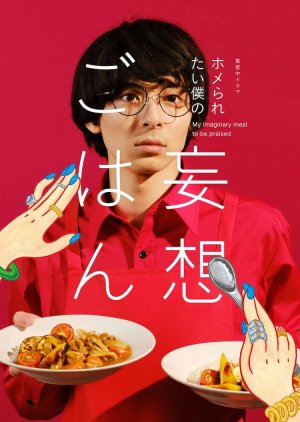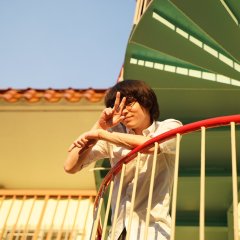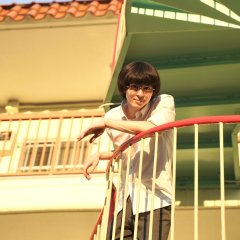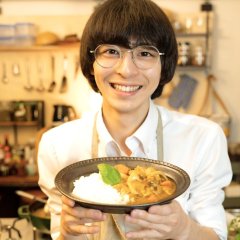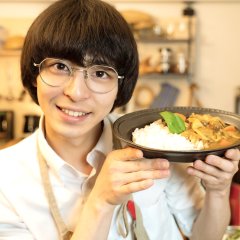Wada Masao works for a subsidiary of an electronics manufacturer, and on weekends he plays the bass guitar. He is serious and clumsy in his relationships. He is not popular with girls and has been without a girlfriend for 3000 days. Masao's daily routine is to cook delicious meals. He stands in the kitchen, preparing ingredients. As he cooks, he enjoys a conversation with his imaginary girlfriend. (Source: Japan Program Catalog) Edit Translation
- English
- magyar / magyar nyelv
- עברית / עִבְרִית
- dansk
- Native Title: ホメられたい僕の妄想ごはん
- Also Known As: My Imaginary Meal to be Praised , Cooking for My Imaginary Girlfriends , Home Raretai Boku no Moso Gohan
- Screenwriter: Kishimoto Ayuka, Gajin Shouta
- Director: Hariu Yuji
- Genres: Food, Drama
Cast & Credits
- Takasugi MahiroWada MasaoMain Role
- Ono KarinAyukawa TomokoSupport Role
- Sakai WakanaTachibana AoiSupport Role
- Fukuyama ShodaiIchikawa KanadeSupport Role
- Naito ShuichiroYamaken EijiSupport Role
- NatsukoFujisawa TamakiSupport Role
Reviews

Slightly sweet, slightly sad but very formulaic
Wada Masao is the bass player for the popular rock fusion group Gesu no Kiwami Otome under the stage name Kyūjitsu Kachō (Weekend Manager). In 2018 he appeared on the Netflix reality show Terrace House for the end of its Opening New Doors series where he wooed one of the housemates by making his clam curry for her. In 2020 he released a cookbook which formed the basis for this series.Each episode follows the same structure. The show begins with a cold open of the young salary man Wada Masao at work or rehearsing with his band. He then goes to the local grocery when its about to close where he encounters a sales clerk and a stock boy (played by the real Wada Masao who has, maybe at stretch, a dozen lines over the course of the series). Back at home he prepares a meal. Most of the ingredients and timings are mentioned, but I'm doubtful that these scenes would suffice for someone to execute the recipes. At that point, a woman who he has encountered recently appears at his apartment, eats the meal with him and praises his cooking ... and then disappears because these nightly fantasies are all he has going at this point. He then calls his childhood friend Tomoko who is working in New York and there are some final credit scenes with his band or work.
So, in part, this series is about the formation of Gesu no Kiwami Otome. (The diegetic music played by the band is a couple of their songs though Masao's other band Dadaray provides the title and credit tracks for the series.) And, in part, the series is about Masao becoming more assertive, deciding what he wants to do with his life and choosing between a conventional work life and pursuing music more seriously. The series has a few good moments and the last couple of episodes work quite well. The acting is mostly understated and the vibe of the series is quite chill. (You were expecting action scenes in a series based on a cookbook?) All in all, I found the series mildly enjoyable, and the series ends with a nice little crescendo.
Was this review helpful to you?
Recent Discussions
Be the first to create a discussion for Homeraretai Boku no Mousou Gohan

